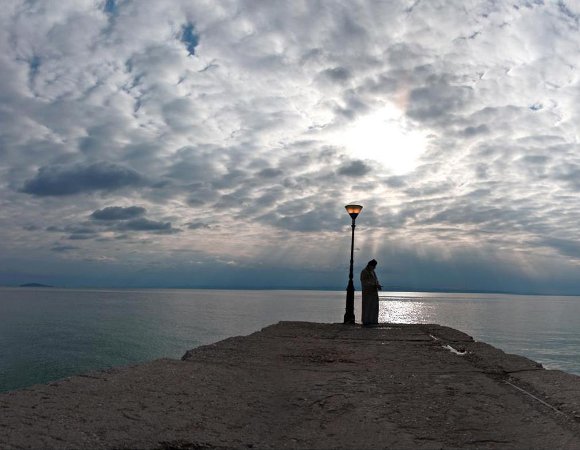Conscious, subconscious, unconscious
 According to what the expert scientists, the psychologists, say, our soul is divided into three levels. It is somewhat like an edifice which is filled with much unknown material.
According to what the expert scientists, the psychologists, say, our soul is divided into three levels. It is somewhat like an edifice which is filled with much unknown material.
The topmost part of the mind is the conscious, namely the part with which we understand ourselves. This is where we become aware of our thoughts, our feelings, our entire disposition, and where we control and know these things. Beneath this level is the subconscious. The content of our subconscious is unknown. However, on occasion, because it is close to the conscious mind, it allows us to sense what it might contain. Now and then, something springs from the subconscious and enters our conscious mind.
Even lower, in the deepest regions, or what we might call the basement of our soul, is the unconscious. The content of the unconscious is terra incognita, unknown land, and it is entirely unknowable to us. And so it is there, deep within us, that exist our personal experiences, our personal conditions. However, because these exist in the unconscious –in this dark basement- we neither know what exactly exists there nor can we control this content. According to the language of psychology, these experiences are repressed emotions and impulses that are pushed into the depths of the unconscious mind. According to the psychologists, this content of the unconscious gains autonomy and does whatever it wants. It doesn’t consider, nor does it ask, us.
That this is autonomic, all of us know. The moment you want to do the right thing, another power comes over you and forces you to do something else, something you don’t want to do, but which you do anyway.
Certainly these things were known to the fathers of the Church, and in particular the neptic fathers. For this reason, they preferred first that they themselves –and later also advised others to –stay in the silence of the desert, and say the Jesus prayer (noetic prayer), trying to plummet the deepest depths of their souls, and in this way to start to know the content of the subconscious, and the unconscious, in order to control it, and not allow it be autonomic and to do whatever it desired.
Because of this, a saint does not have a conscious, a subconscious, and an unconscious. The whole content of his soul is conscious. The saint controls it, and is not at the beck and call of repressed emotions and impulses.
We will see how man can become simple, and not be led blindly by the content which exists in the basement of his soul.
Holy Hesychasterion “The Nativity of Theotokos” Publications.
Archimandrite Symeon Kragiopoulos
The three levels of the soul


